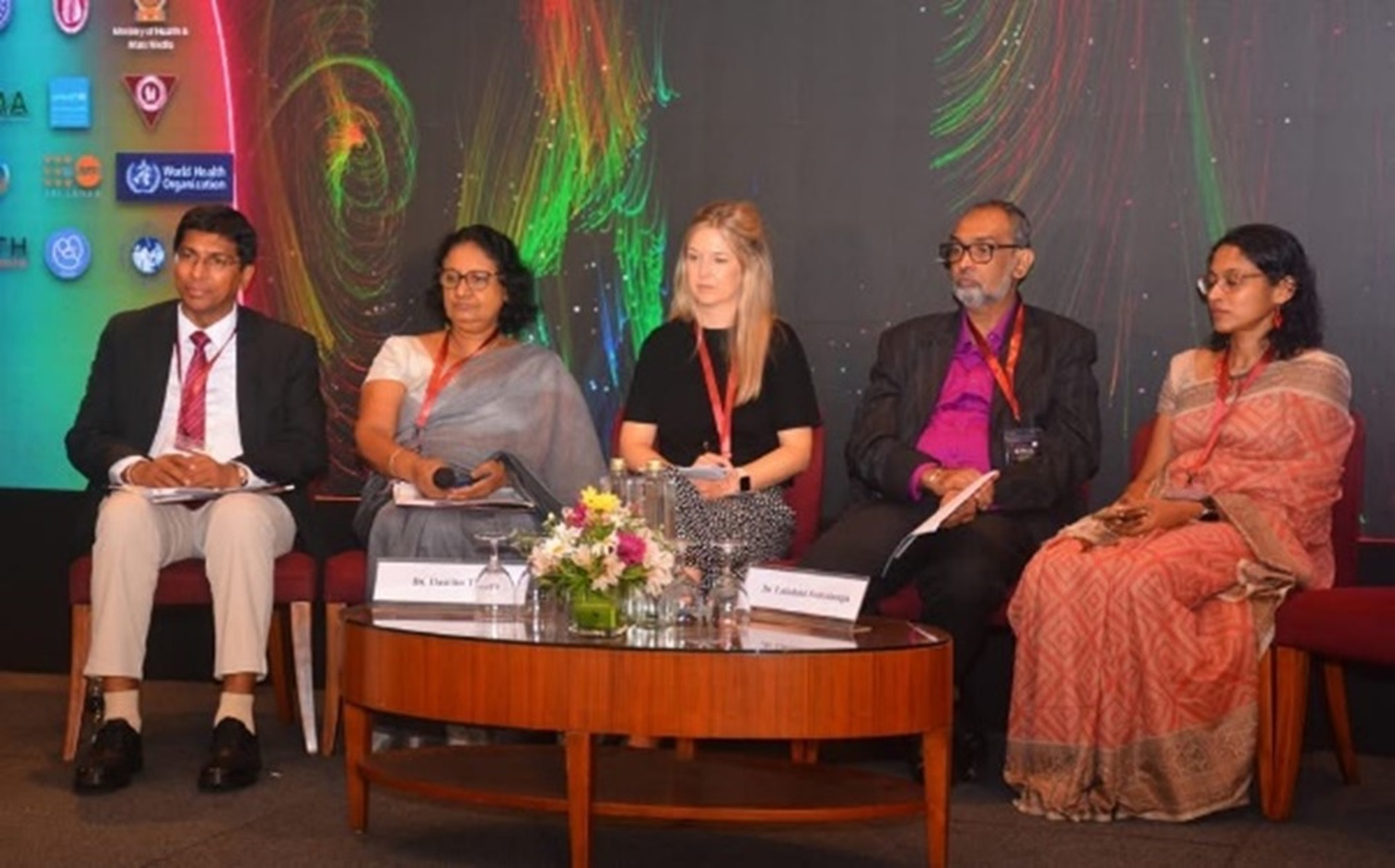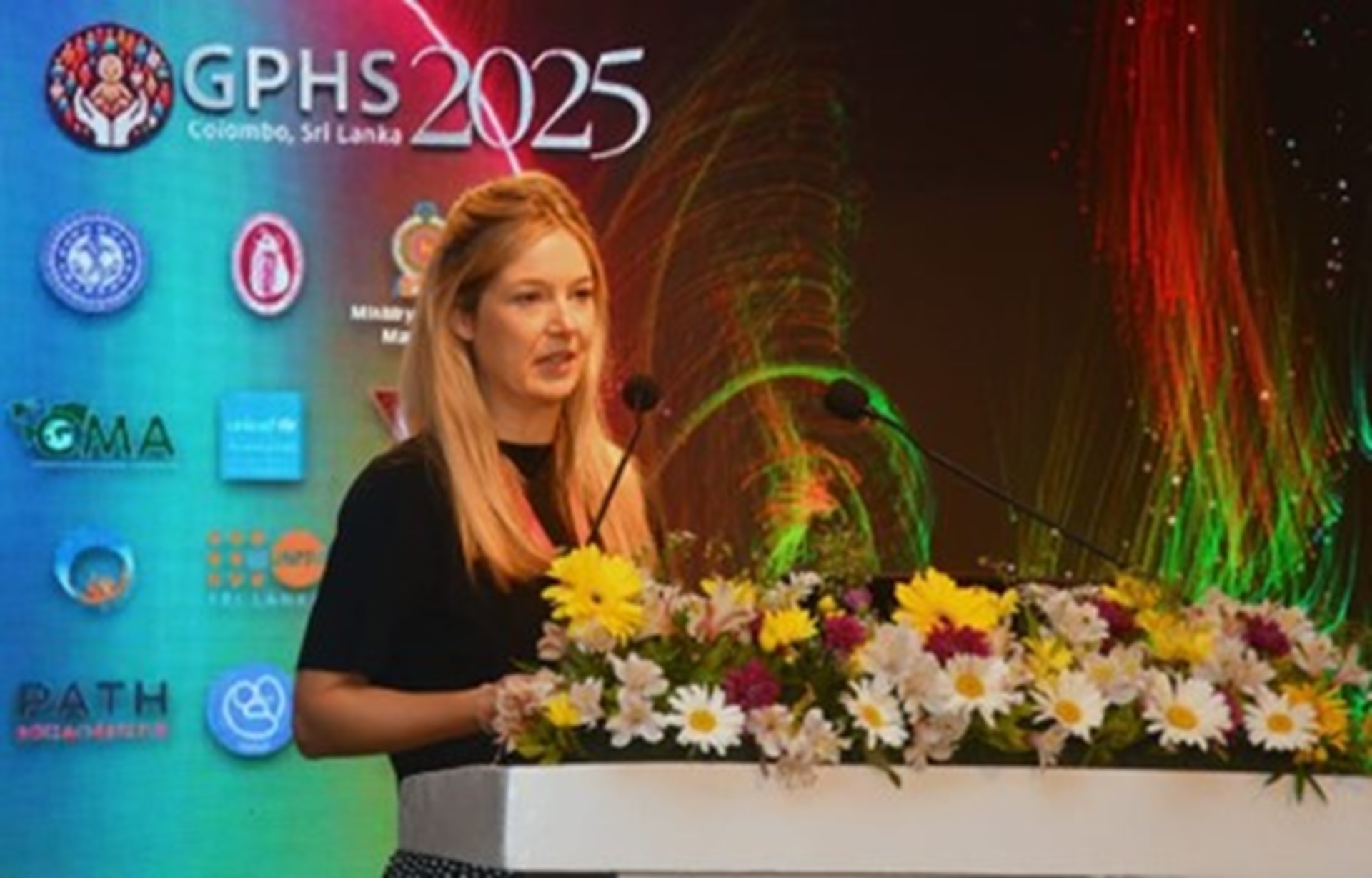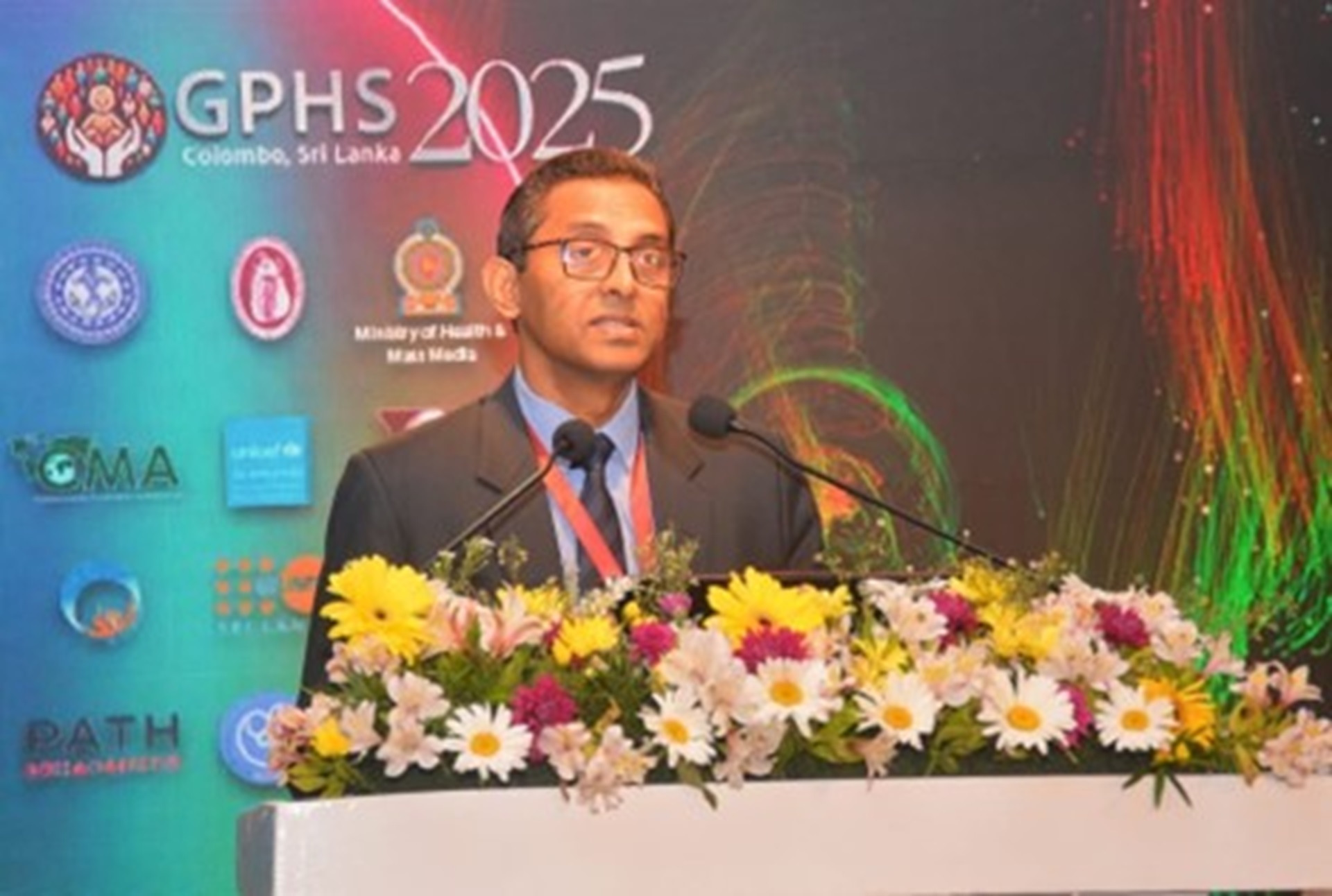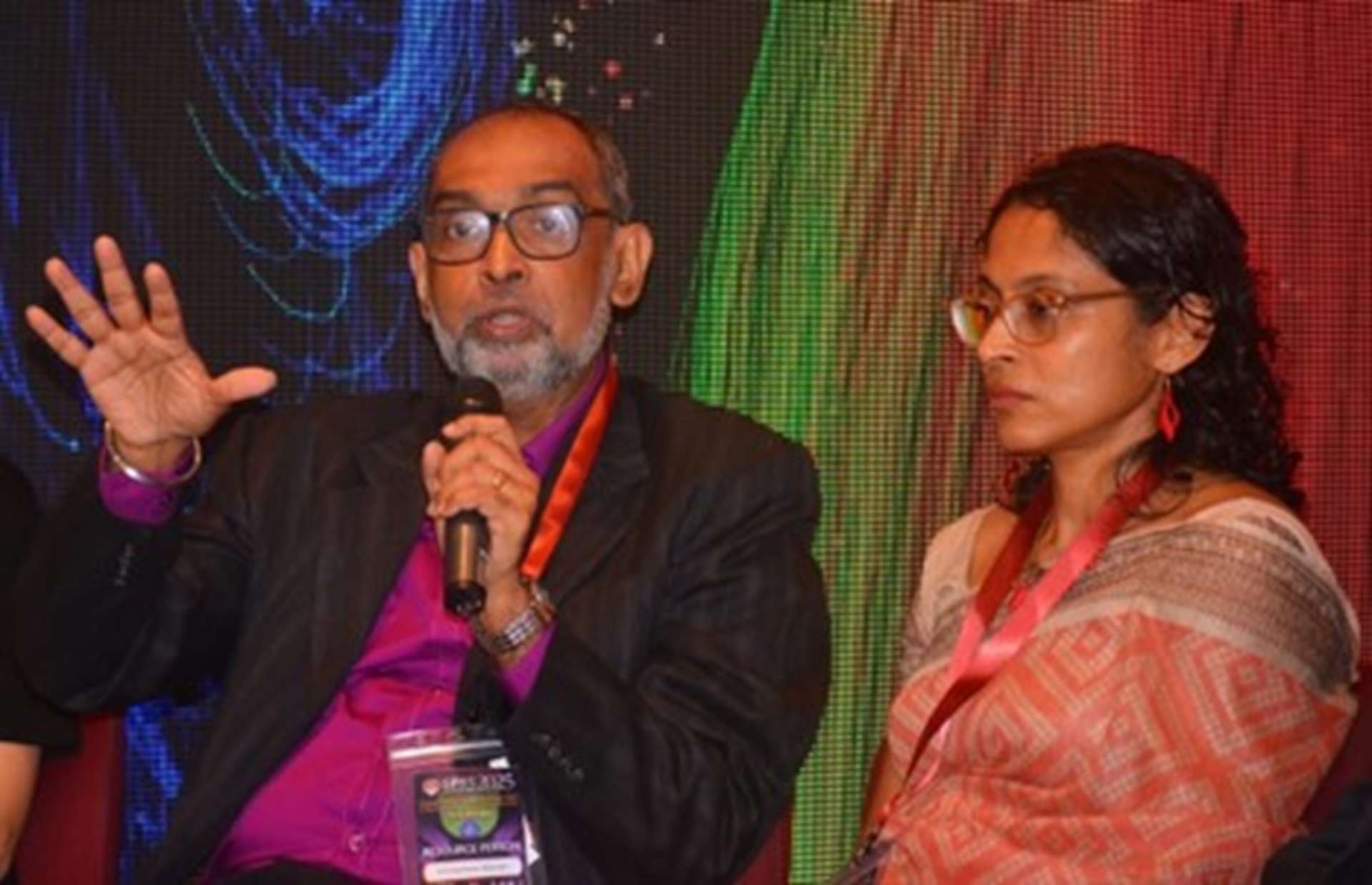Colombo, Sri Lanka | August 2025
Pandemics and epidemics, whether from influenza, coronaviruses, or other respiratory pathogens demand rapid, evidence-based action. The WHO Global Influenza Surveillance and Response System (GISRS) Investigations & Studies initiative, also known as Unity Studies, provides a standardized, globally coordinated framework to support these efforts. Originally developed for influenza and adapted during COVID-19, Unity Studies enable countries to conduct rapid, nationally led investigations and studies to assess transmissibility, severity, susceptibility, and intervention effectiveness.
To better prepare for future influenza pandemics, WHO has recently launched a network of sites which will be ready to conduct these investigations and studies rapidly in the event of a pandemic, or epidemic of an emerging or re-emerging respiratory pathogen. Supported by the Pandemic Influenza Preparedness (PIP) Partnership Contribution fund, this initiative aligns with the SEAR Regional Strategic Roadmap on Health Security and Health System Resilience (2023–2027), and WHO’s Global Influenza Strategy 2019-2030 Tthe WHO South-East Asia Region now hosts six sites of WHO GISRS Unity Studies across the five countries including Sri Lanka, strengthening regional capacity for early pandemic investigations.
Showcasing Progress at the Global Public Health Summit 2025
From 13–16 July 2025 in Colombo, the Global Public Health Summit offered an opportunity to advance this agenda. Co-supported by PIP-PC fund, this influenza-focused symposia convened the Sri Lankan Ministry of Health, academic partners, WHO headquarters, regional and country offices, and global experts.
At the plenary session “Unity Studies for Influenza and Other Respiratory Pathogens: Advancing Equitable Surveillance and Pandemic Preparedness”, chaired by Dr. Lakshmi Somathunga, Additional Secretary and Dr. Hasitha Tissera, Chief Epidemiologist, Ministry of Health and Mass Media, Sri Lanka, showcased how COVID-19 Unity Studies have strengthened national capacities that are now being applied to influenza and other respiratory pathogens.

Photo: Panelists of the Unity Studies plenary included experts from the Ministry of Health, academia, and WHO. (Photo credit: College of Community Physicians of Sri Lanka)
In the sessions, Dr. Nicki Boddington, Consultant, WHO Headquarters presented on enhancing surveillance, operational research, and global knowledge during the COVID-19 pandemic as well as plans for the Unity Studies network going forward while Dr. Pushpa Ranjan Wijesinghe, Programme Area Manager (Infectious Hazard Management) , WHO-SEARO focused on advancing pandemic influenza preparedness for regional health security through this initiative in WHO’s South East Asia Region.

Photo: Dr. Nicki Boddington from WHO Headquarters shares insights from Unity Studies conducted during the COVID-19 pandemic and outlines WHO’s vision for the Unity Studies Network in strengthening future pandemic preparedness. (Photo credit: College of Community Physicians of Sri Lanka)
From the Sri Lanka site, Professor Neelika Malavige, University of Sri Jayewardenepura and Dr. Thilanga Ruwanpathirana, Consultant Epidemiologist, Ministry of Health, discussed early-stage investigations, lessons learned from COVID-19, and the country’s approach to implementing Unity Studies to inform evidence-based decision-making. The session emphasized early, country-led investigations, strengthened operational capacity, and timely public health action to enhance preparedness for future epidemics and pandemics.

Photo: Dr. Thilanga Ruwanpathirana presents the Ministry of Health’s vision for leveraging early-stage investigations during epidemics and pandemics to inform public health decision-making. (Photo credit: College of Community Physicians of Sri Lanka).
Field Engagement and Operational Readiness
Beyond the summit hall, the WHO delegation visited and met with the chief Epidemiologist, the principal investigators and team members of Sri Lanka’s Epidemiology Unit and the University of Sri Jayewardenepura. The latter serves as the Unity Studies site in the country. The delegates discussed readiness for early pandemic investigations, preparation for joining the WHO’s RSV surveillance and burden of disease initiative and exploring synergies through integration with Pandemic Fund-supported activities. These engagements reaffirmed the importance of influenza pandemic readiness, having pre-approved protocols, trained teams, and clear data-sharing arrangements in place before an epidemic or pandemic occurs. The visit concluded with strategic discussions with the Director-General of Health Services, Sri Lanka.
The visit and the symposium reaffirmed that Sri Lanka, a new PIP-PC recipient country, is positioning itself as a regional leader in early pandemic investigations under the global Unity Studies Network. By integrating Unity Studies into national health security planning, the country is establishing readiness to respond swiftly when a novel respiratory pathogen emerges. Efforts are already underway to put in place national protocols, trained teams, and governance mechanisms, ensuring Sri Lanka can generate timely, high-quality data to guide decision-making and contribute to regional preparedness efforts.
Looking Ahead
Participation in the Unity Studies Network brings tangible benefits: technical capacity building, harmonized protocols, access to a global peer network, and recognition as a WHO GISRS Unity Studies investigation site. Most importantly, it accelerates the collection and sharing of critical data during the earliest, and often most decisive, stages of a public health emergency.

Photo: Dr. Pushpa Ranjan Wijesinghe, Regional Coordinator of the Unity Studies Network at WHO SEARO, explained the direct and indirect benefits to Sri Lanka from participating in the global network. (Photo credit: College of Community Physicians of Sri Lanka).
By aligning activities related to Unity Studies with the PIP High Level Implementation Plan -III and the WHO Global Influenza Strategy (2019–2030), the South-East Asia Region is not only enhancing preparedness for influenza pandemics but also building resilience against a broad spectrum of respiratory pathogens. These efforts demonstrate how sustained investment, strategic partnerships, and operational readiness can transform lessons from past crises into a safer future for all.
